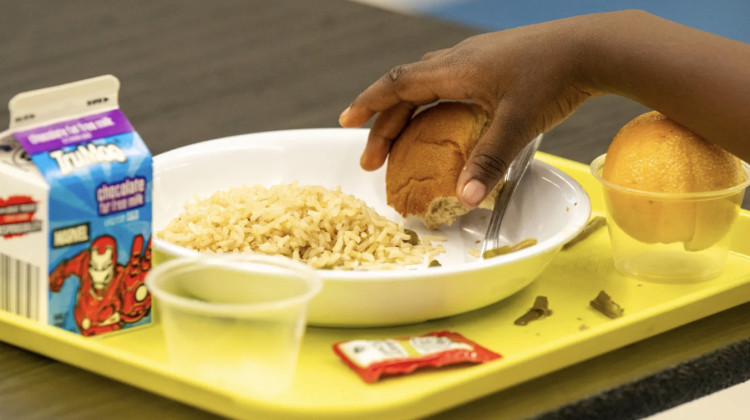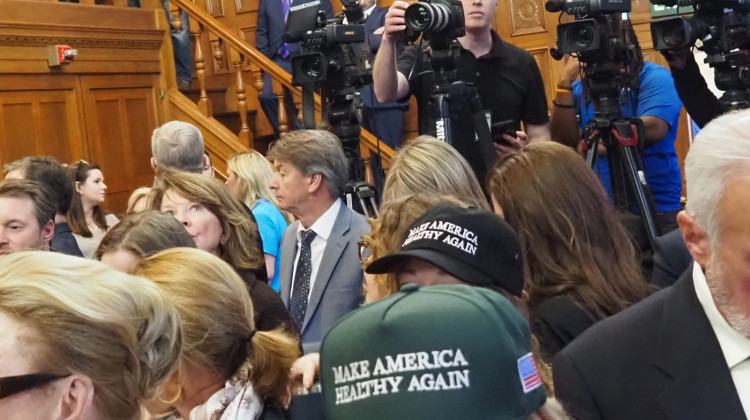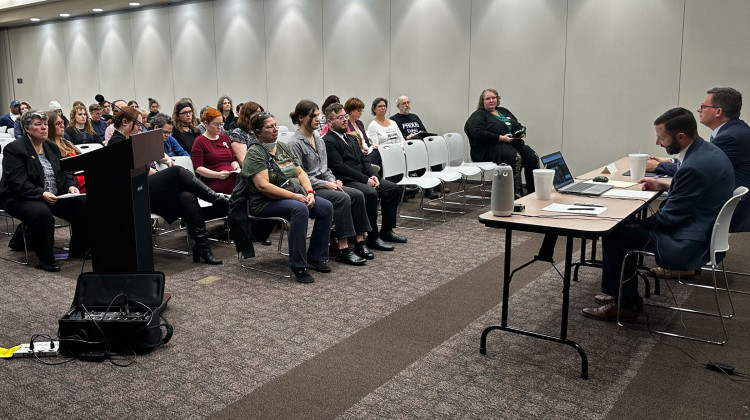While doctors and nurses are risking their lives working with COVID-19 patients in hospitals, others are risking theirs working in stores and making deliveries. Indiana Public Broadcasting’s Rebecca Thiele has been talking with other essential workers whose stories need to be told.
Juan Ruffin Sr. is a butcher at Kroger. He says he likes being able to do something most people can't — sectioning out cuts of meat from a cow, chicken, or pig.
"It's always been a physical job, we lift slabs of meat upwards of 100 pounds constantly, most of the day. So the physicality I'm used to — I enjoy that — but it's mentally now," he says.
Ruffin says a lot of meat processing plants have closed because some workers have come down with COVID-19. That means less meat for customers and more uncertainty for him when trying to reorganize the meat coming in.
He says his Kroger store has been limiting customers to two packages of beef, two packages of pork, and two packages of chicken — which frustrates some people.
"If you just are randomly shopping, you don't understand why you can only get two bags of ground beef —or if you have a large family," Ruffin says. "We don't discriminate. There's a limit of two packages because we're short on product. It's the times that we're in now."
Ruffin says he's not worried about getting sick himself — he's always been pretty healthy — but he is concerned about his coworkers. He feels like Kroger could be doing more to keep employees safe.
"They said that we're going to limit our capacity to half capacity — or going by what the fire marshal says. But there is not a Kroger that ever has full capacity in their stores. So you're not really limiting the customer contact," Ruffin says.
Join the conversation and sign up for the Indiana 2020 Two-Way. Text "elections" to 73224. Your comments and questions in response to our weekly text help us find the answers you need on COVID-19 and the 2020 election.
Ruffin says employees have plenty of masks and gloves, but he says customers should be required to wear masks and Kroger should put hand sanitizer at the door.
"I just feel like if it's about keeping your associates safe, then you should require the same things of your customers that you require your associates," he says.
Ruffin says about 20 percent of the people coming in the store aren't wearing masks. While that might seem small, he says a lot of those customers are regulars.
"I have several shoppers that come in my store every day, maskless. It's concerning — and then the stance that if they are carrier, then they're exposing the same people every day," Ruffin says.
Ruffin estimates that he comes in contact with anywhere from 500 to 1,000 people a day in his eight-hour shift.

Ruffin says we all have to remember that we're in this together — so people have to stop what they would normally do to let the country heal.
"Nobody wants to sit still. Nobody wants to take time out. Nobody wants to stay, OK this is the right thing to do," he says. "Everybody has to recognize. It's not what we want to do. We have to do it because it's the right thing to do."
Contact Rebecca at rthiele@iu.edu or follow her on Twitter at @beckythiele.
 DONATE
DONATE







 Support WFYI. We can't do it without you.
Support WFYI. We can't do it without you.